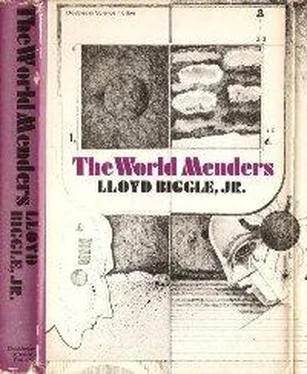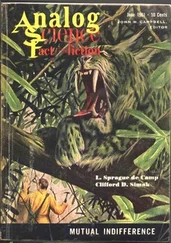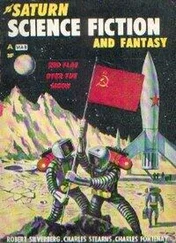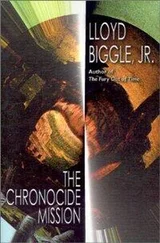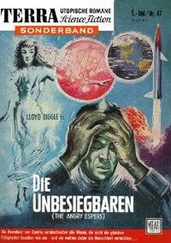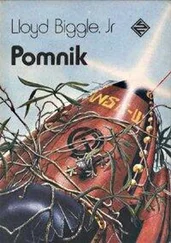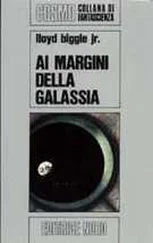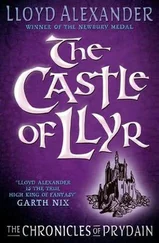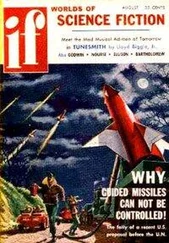Lloyd Biggle Jr. - The World Menders
Здесь есть возможность читать онлайн «Lloyd Biggle Jr. - The World Menders» весь текст электронной книги совершенно бесплатно (целиком полную версию без сокращений). В некоторых случаях можно слушать аудио, скачать через торрент в формате fb2 и присутствует краткое содержание. Год выпуска: 1971, Издательство: Doubleday, Жанр: Фантастика и фэнтези, на английском языке. Описание произведения, (предисловие) а так же отзывы посетителей доступны на портале библиотеки ЛибКат.
- Название:The World Menders
- Автор:
- Издательство:Doubleday
- Жанр:
- Год:1971
- ISBN:нет данных
- Рейтинг книги:5 / 5. Голосов: 1
-
Избранное:Добавить в избранное
- Отзывы:
-
Ваша оценка:
- 100
- 1
- 2
- 3
- 4
- 5
The World Menders: краткое содержание, описание и аннотация
Предлагаем к чтению аннотацию, описание, краткое содержание или предисловие (зависит от того, что написал сам автор книги «The World Menders»). Если вы не нашли необходимую информацию о книге — напишите в комментариях, мы постараемся отыскать её.
The World Menders — читать онлайн бесплатно полную книгу (весь текст) целиком
Ниже представлен текст книги, разбитый по страницам. Система сохранения места последней прочитанной страницы, позволяет с удобством читать онлайн бесплатно книгу «The World Menders», без необходимости каждый раз заново искать на чём Вы остановились. Поставьте закладку, и сможете в любой момент перейти на страницу, на которой закончили чтение.
Интервал:
Закладка:
“I’d say they’re very likely to present a distorted picture, sir.”
“Headquarters won’t like that suggestion, but I agree that it should be looked into. What else?”
Two of the super-specialists burst into the room, one calling, “Farrari? Is Farrari in here?”
Farrari turned.
“Do the olz eat meat?” the specialist demanded.
“Never,” Farrari said.
“There!” the other specialist said smugly. “Clearly a case of arrested evolution. Hunting and meat-eating develop the brain, the olz never hunted, so their cortices—”
“You can’t know that until we obtain specimens for dissection. The question is whether they don’t eat meat because they won’t, or because they can’t, or because they don’t have meat to eat.”
Farrari said politely, “I doubt that the present diet of the olz is much help to either of you. They eat what the rascz give them to eat. Before the rascz came they may have eaten nothing but meat.”
“Not with those teeth!” the first specialist snapped.
“There’s no incompatibility between ol type teeth and an omnivorous diet,” the other said. “Look at your own teeth.”
“I do, frequently, and I fail to see—”
The sector supervisor said mildly, “Gentlemen—” They left, and their argument faded away down the corridor.
“You were mentioning other questions,” Ware said to Farrari.
“There are a number of them concerning the relationship of the rascz and the olz. The history section is working on them.”
“The cave carvings?”
“Those and other things. There are some baffling inconsistencies. For example, when I led an ol uprising, the rascz paid no attention to the olz. When Bran, in the guise of an ol, assassinated a few durrlz, the army turned out, slaughtered whole villages of olz, and burned their huts. Dr. Grant thinks he has the answer to that—one of those strange Branoff IV viruses causes a peculiar type of madness in laboratory animals. The most timid grass eater will run amok and attack its predators, and its bite or scratch becomes virulently infectious. Garnt thinks that on rare occasions olz acquire the disease, and that the rascz have somehow learned that when this happens the only solution is to exterminate those already exposed and burn the huts they’ve lived in. In other words, the rascz knew that there was only one circumstance under which an ol would attack a rasc: When Bran murdered those durrlz they immediately concluded that the madness had struck again, and as a public health measure they reluctantly took the action they thought urgently necessary.”
“It would seem,” Ware said slowly, “that we have humanlike animals here, and that the rascz deliberately bred them to produce the kinds of work animals they wanted. Beyond that we have a great many questions. Go and get as many answers as you can.”
The coordinator followed Farrari to the door. “Going back to your workroom?”
Farrari nodded.
“I’ll come along. Since I can’t use my own office.”
They walked side by side. Ahead of them a base specialist and a super-specialist were engaged in what was obviously a long-standing argument.
“Will you stop using that word slave? Aren’t all domestic animals slaves?”
“Listen. I’m not arguing about whether the olz are human or animal. I’m telling you the rascz think they’re human. Why else are they banned from the cities? No other animals are banned from the cities. Why else is their ownership a monopoly of the kru? All the other animals can be owned by anybody. Why else would the rascz train the olz to wear that sloppy clothing? None of the other animals wear clothing. Tell me this. Did you ever hear of a rasc eating an ol?”
Still arguing, they disappeared around a corner. The coordinator and Farrari turned toward Farrari’s workroom, and as they approached it a copy of the IPR Field Manual 1048K shot through Heber Clough’s door—the room had long since been occupied by super-specialists—struck the wall, and bounced at their feet. The coordinator halted with a scowl.
“Nothing fits!” a voice exclaimed hoarsely.
“Of course nothing fits. No society has ever existed with a deliberately-bred semi-intelligent domestic animal servant class. The Bureau’s theories and rules couldn’t possibly apply to a situation so incompatible with its previous experience.”
Farrari grinned—the second statement was an approximate quotation from a lecture he’d delivered two hours earlier—and followed the coordinator into his workroom.
They made themselves comfortable, and Farrari said, “I’m seriously thinking of going back. I can’t get any work done here—people keep interrupting me.”
“Go ahead,” the coordinator said. “You can answer questions once a day by appointment on Jorrul’s communication network.”
“Why don’t you move your office down here? I’m the only base specialist left with a workroom of his own.”
“I’ll think about it. I keep being interrupted, too, and moving my office wouldn’t help. I spent my much interrupted afternoon yesterday trying to identify Bran for you, but I couldn’t. There’s no doubt at all about his being an IPR agent?”
“No doubt at all.”
“Strunk is holding some photos for you to look at when you have time. Unfortunately, they’re regular identification photos. We’ve never bothered to keep a file of photos of our agents in their native disguises. Now I suppose we’ll have to. Is there anything new on the cave carvings?”
“The super-specialists are willing to go along with me if I’ll explain why anyone would go to so much trouble.”
“The possibility of overthrowing a government must have a certain allure to it,” the coordinator said. “On any world people are likely to go to considerable trouble and expense.”
“Someone did,” Farrari said. “Someone who maybe thought past failures with the olz were due to their not being properly motivated. Obviously the rascz do think the olz are human, or at least they did in ancient times. They tried to use something that would have worked beautifully with their own race—a cult of ol supremacy with carvings showing olz as masters of Scorvif. After the insurrection was crushed, the kru—or his priests—was sufficiently impressed to keep a censored version of the cult going as the ol religion, perhaps to make certain that the same gimmick wouldn’t be used again. The yilescz may have come into being at the same time, not to minister to the olz, but to spy on them. In some later insurrection the yilescz may have sold out to the rebels, which would account for their present ambivalent status.”
“It’s possible,” the coordinator agreed. “On this world I’m beginning to think that anything is possible.”
One of the linguists looked in, nodded at Farrari. “We make it eighty-two, but we can’t agree on the variants. There may be as few as dozen or as many as fifty.”
“It amounts to a fair-sized pseudo vocabulary,” Farrari observed.
The linguist nodded. “If they’r animals, they’re unique.”
“If they’re human, they’re unique, too,” Farrari said.
The linguist went away, and the coordinator said with a chuckle, “All of this is shaking the Bureau to its time-honored foundations. Every problem world will have to be restudied, and the Bureau doesn’t have the right kind of specialists to do the job. It doesn’t have a single expert in animal communication or sociology or anything remotely connected with such things. It’s never needed any.”
Читать дальшеИнтервал:
Закладка:
Похожие книги на «The World Menders»
Представляем Вашему вниманию похожие книги на «The World Menders» списком для выбора. Мы отобрали схожую по названию и смыслу литературу в надежде предоставить читателям больше вариантов отыскать новые, интересные, ещё непрочитанные произведения.
Обсуждение, отзывы о книге «The World Menders» и просто собственные мнения читателей. Оставьте ваши комментарии, напишите, что Вы думаете о произведении, его смысле или главных героях. Укажите что конкретно понравилось, а что нет, и почему Вы так считаете.
